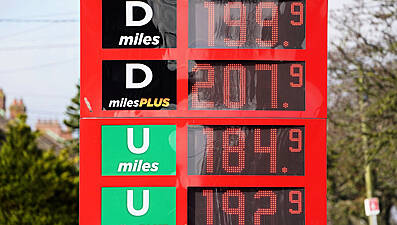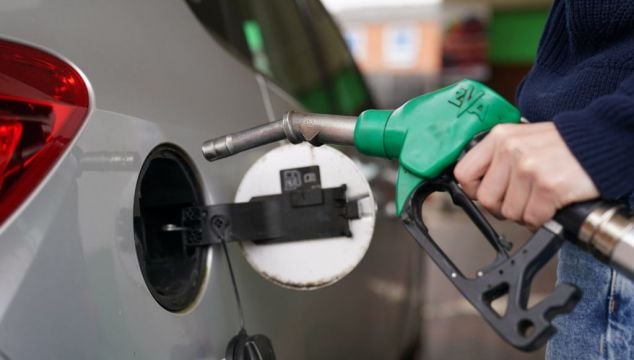There is no limit to the fuel prices filling stations can set, Ireland’s consumer watchdog has said, adding that traders have no obligation to pass on a cut in excise duty to customers at the pump.
The Competition and Consumer Protection Commission (CCPC) said there are “no legal barriers” to filling stations independently increasing prices, after politicians called for it to investigate alleged price-gouging ahead of a cut in excise duty.
On Thursday, the watchdog said traders are not obliged to pass on reductions to VAT or other excise charges to consumers.
“Traders are obliged to set their prices independently and based on their own particular circumstances. They are free to set and review their prices at any time,” it said.
“This means that while traders may pass on savings made as a result of changes to excise rate, there is no obligation on them to do so.”
The CCPC said it has no role in monitoring price increases and there are only “rare situations” where a trader could breach competition law by charging excessive prices.
“Price-fixing, where traders collude to fix prices at a certain level, is described as a cartel and this is illegal. Participants in a cartel can face criminal prosecution,” it said.
However, it added that evidence that certain traders have increased their prices does not constitute evidence that a cartel is in existence, saying “tangible proof of an agreement between competitors to coordinate their anti-competitive activity” is required.
Emergency situation
The watchdog added that in emergency situations, governments may intervene to set prices on certain products.
“Setting prices in complex markets where prices fluctuate every day is extremely challenging,” it said.
“This can distort the market, impact on supply and risk eliminating the significant benefits that competition delivers for consumers. This is why governments tend to take other actions to address such situations, eg changes to the tax system.”
Earlier, Sinn Féin TD Pearse Doherty told the Dáil that the cut to excise duty on petrol and diesel which took effect at midnight had been “immediately eroded,” with fuel costs higher on Thursday than earlier in the week.
He said that many filling stations were charging over €2 per litre and accused some of “engaging in price-gouging at a time of crisis”.
Minister for Consumer Protection Robert Troy meanwhile urged the public to notify the CCPC if they saw any unfair pricing practices or "cartel behaviour".

The Government agreed on Wednesday to introduce a cut of 20 cent per litre on petrol and 15 cent per litre of diesel, which took effect from midnight on Thursday.
The measure, introduced amid concerns about growing pressures on the cost of living, will last until August 31st.
Despite the slash in excise duty, many drivers were seeing prices above €2 a litre on Thursday.
Representatives of the sector have said it could be a number of days before the cut in excise is reflected in the price at the pumps.







